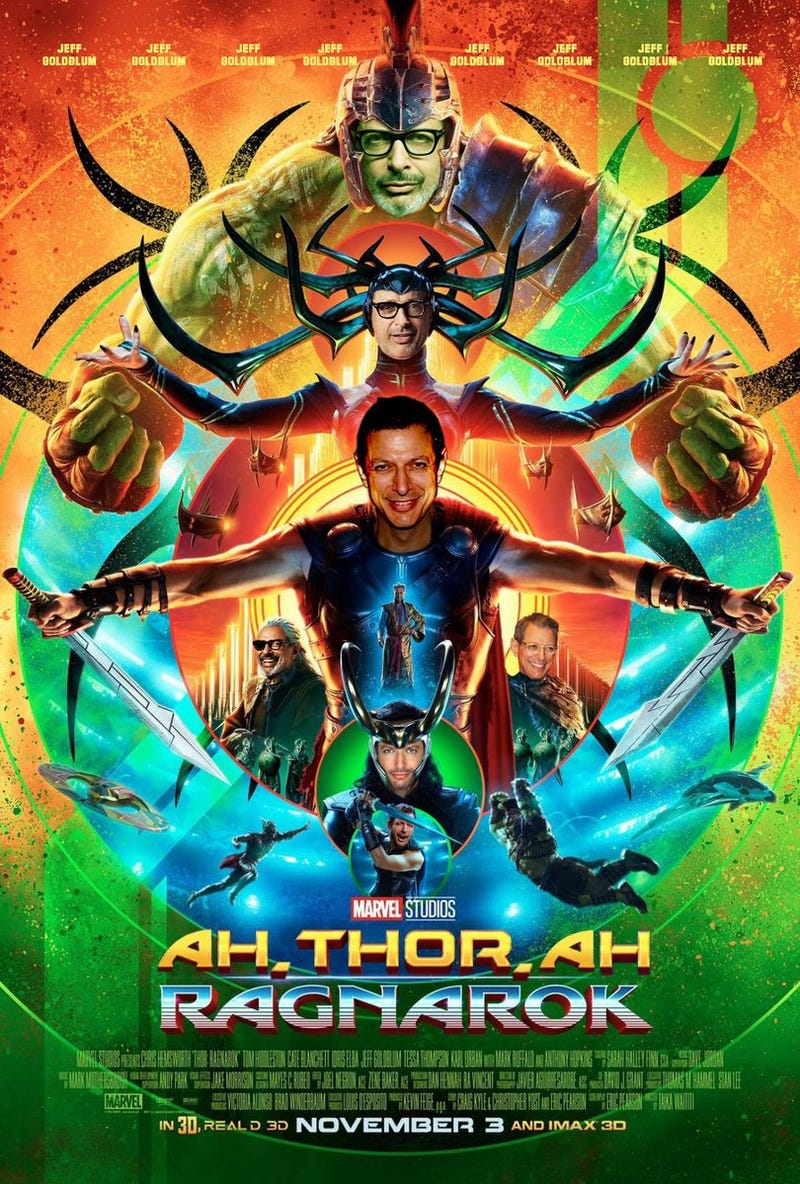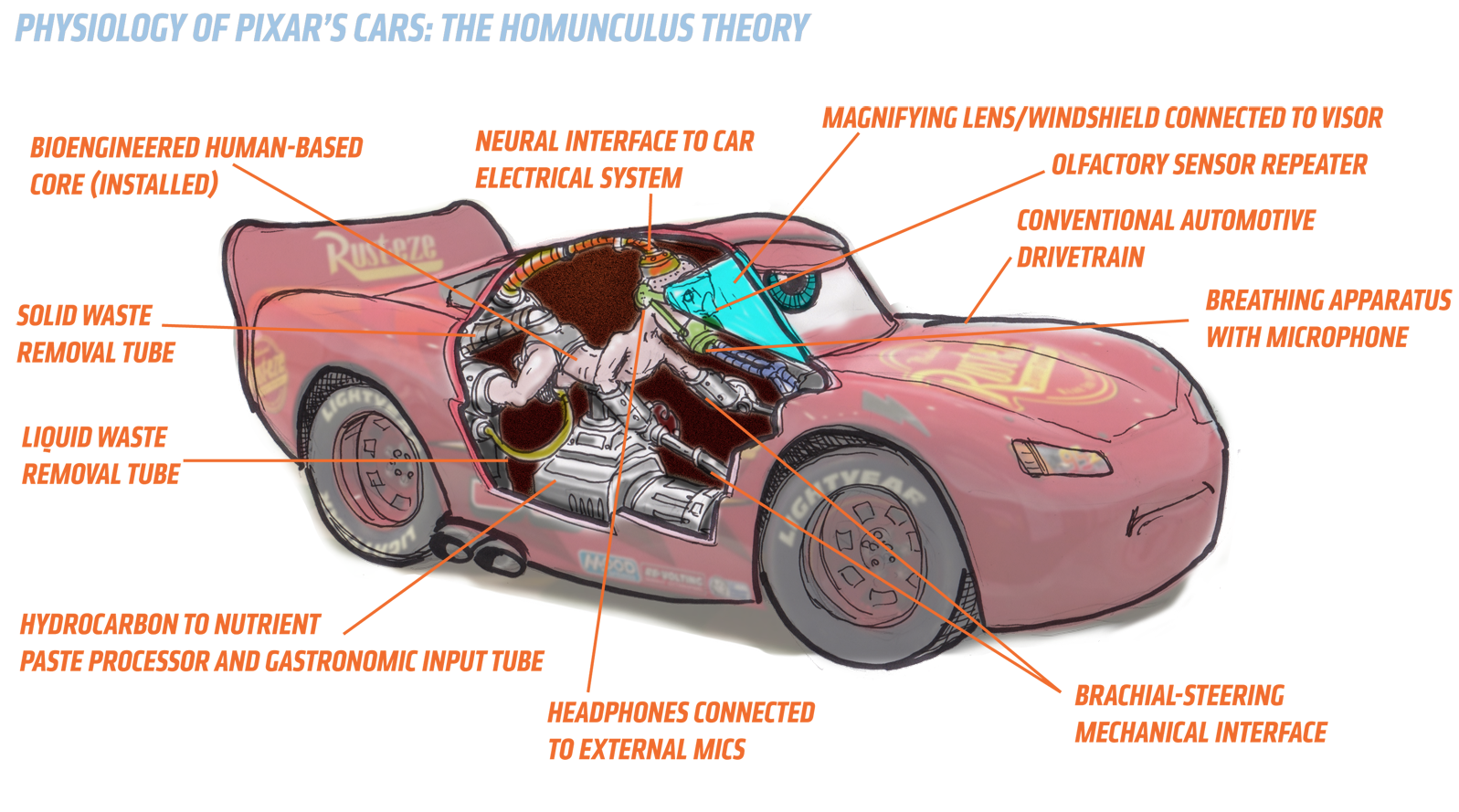-
Content count
345 -
Joined
-
Last visited
Posts posted by DocRandal
-
-
I finished it! Loved the end credits. I'm missing a few hats and didn't solve a couple minor mysteries but I got the important side quests done.
-
Big Moon: It's the Ponzo Illusion.
If you’ve ever seen the Moon rising over the horizon, looking so fat and looming that you felt like you could fall right into it, then you’ve been a victim of the famous Moon Illusion. And it is an illusion, a pervasive and persuasive one. So, how does this thing work? Ah, step right up. One of my favorite brain-benders is the Ponzo Illusion. You’ve seen it: the simplest case is with two short horizontal lines, one above the other, between two slanting but near-vertical lines. The upper line looks longer than the lower line, even though they’re the same length.
The illusion works because our brains are a bit wonky. The slanted lines make us think that anything near the top is farther away; the lines force our brain to think those lines are parallel but receding in the distance (like railroad tracks). The two horizontal lines are physically the same length, but our brain thinks the upper one is farther away. If it’s farther away, then duh, our brain says to itself, it must be bigger than the lower one. So we perceive it that way.
Bravo to Unimural for an excellent explanation of using Wolbachia bacteria to reduce mosquito populations. Reading about Wolbachia is definitely worth a deep dive.
-
https://www.engadget.com/2017/07/27/miyubi-funny-or-die-jeff-goldblum-vr-feature/
It's 1982. A young boy named Dennis has just received the birthday present of his dreams. It's you -- a Japanese robot that can repeat words, although for the most part you watch silently.
Miyubi is still enjoyable without the bonus scenes, but you'll be greatly rewarded when you find them. Goldblum appears in the extra, and when you look into his teary eyes as he apologizes for your pain, the show goes from "OK" to "oh, my God." He is your Maker, and he's created a little piece of heaven in your system for you to escape to, because he knew, even as he made you, that you were quickly going to be replaced. In the scene, the Maker wonders aloud if he should call this fantasy world "reality virtualized" or, you know, something like that.
-
https://www.engadget.com/2017/07/27/miyubi-funny-or-die-jeff-goldblum-vr-feature/
It's 1982. A young boy named Dennis has just received the birthday present of his dreams. It's you -- a Japanese robot that can repeat words, although for the most part you watch silently.
Miyubi is still enjoyable without the bonus scenes, but you'll be greatly rewarded when you find them. Goldblum appears in the extra, and when you look into his teary eyes as he apologizes for your pain, the show goes from "OK" to "oh, my God." He is your Maker, and he's created a little piece of heaven in your system for you to escape to, because he knew, even as he made you, that you were quickly going to be replaced. In the scene, the Maker wonders aloud if he should call this fantasy world "reality virtualized" or, you know, something like that.
-
*Cop wakes up, thinks "oh, man, I must be the hospital, good thing my partner Frank took me there. My neck must be messed up, why it it taking so long to turn my head and look at this mirror-*
*sees robot body staring back in mirror, Identity recognition HUD algorithms show "KnightScope Model 1.00.A 99.7% certainty"*
IT ME IT ME IT ME IT ME IT ME IT ME IT ME
-
Chris, I had a similar amazon experience. Had dust-free cat litter on subscription for monthly delivery, worked fine for 6 months, then suddenly got the wrong cat litter. Called it in, next day shipping, wrong cat litter. Third time, wrong cat litter and they canceled my subscription. I moved to Chewy for my pet supply needs after that but I can only assume that the storage bin had been filled with the wrong product and the humans aren't paid to check minor changes, they're paid to get product out the door as fast as possible.
About the physical robots, watch for algorithm improvements. When the algorithms that control them get better, that's when you need to pay attention. So watch out for amazon never getting an order wrong, I guess.
-
-
FYI, Chicken pox is caused by the Varicella-Zoster virus (VZV). There is a vaccine that was developed (in 1995), and every child should get it, for this reason: the chicken pox virus stays latent in your body after you recover from the symptoms and can later emerge as an incredibly painful body rash known as Shingles. Typically this happens when your immune system becomes impaired for whatever reason.
More information: https://www.cdc.gov/vaccines/pubs/pinkbook/downloads/varicella.pdf
I understand why people might become nostalgic, but everyone should understand that it's only because they're remembering beloved memories and/or people to the exclusion of the hellscape that was going on around them at that time. The world is better than it's ever been; human misery, although still present in large quantities, is the lowest it's ever been.
-
New Podcast title - Important if True:Hoisted by Poo.
Nick's Liverwurst mentor threw me for a loop until I realized he grew up in the Midwest like me. Old Midwest guys love it. "Buy the Wurst, it's the best."
Great email on CRISPR! Important and True.
-
LavishLoach,
Great summary of the current state of CRISPR research *molecular geneticist high-five*. [Edit: Removed a bunch of self-serving commentary]
It's easier to fix genetic diseases when the defect is caused by an error in a single gene - science is just scratching the surface on the number of genes necessary to make changes to things like eye/hair color and height. To put that in Thumbs perspective, changing a single gene is like adding a a line of text just before you ship a game; figuring out the genes and the associated regulatory systems you need to change to manipulate height/intelligence is like having to rewrite the game engine code from scratch during crunch time when you didn't write the engine and the team lead tells you 'just figure it out'.
-
8 hours ago, SuperBiasedMan said:Generally I think the doomsday stuff is just silly fun. Bit legitimately with CRISPR, I don't understand how scientists can so confidently assert that no-one would do anything bad with it, in a world where Trump got elected.
It comes down to, are people like Trump willing to fund long-term research to make the things that would do bad things? The answer is almost always no. As proof I present his proposed budget that slashes federal research funding at the knees and would destroy the research university system in the United States.
-
32 minutes ago, Gormongous said:We exist in a world where funding for the sciences (and the arts and humanities, for that matter) depends on getting rich, bored laypeople (or, worse, bored bureaucrats) excited about your research, so I think a lot of scientists and academics get stuck in a permanent "Think of all the awesome things that this could mean" mode.
This. 100%. When we write grant applications we have to always include lay summaries of why the average person should care about this research enough to fund it so you have to list the long-term implications of the work. It's not wrong, it just may be 5, 8, 12, 25 years into the future.
-
As a cancer researcher reading the papers about using CRISPR to treat cancer, and as a microbiologist knowing the origin of CRISPR (it's originally an immune system developed by bacteria to fight off viruses - the scientific community modified it into a genetic engineering tool), I enjoyed the discussion about CRISPR. I was going to suggest the video Nick watched before he said he watched it.
As for the ethical implications, scientists have already discussed it back in the 1970s when crude genetic manipulation first became possible at the 1975 Asilomar Conference where the guidelines for ethical genetic engineering were laid. https://en.wikipedia.org/wiki/Asilomar_Conference_on_Recombinant_DNA
Back then, we had tools that were far more inefficient but everyone saw the implications and dangers. The press reported on it as if we had a tool like CRISPR back then.
I can get deep into this but in summary, the scientific community is still improving the CRISPR-type tools to get more precise and efficient. Our main targets will initially be replacing single genes that cause congenital genetic diseases like cystic fibrosis and sickle cell anemia. CRISPR genetic therapy will eventually be put next to vaccines as a cure for human miseries. CRISPR is starting to be put to use to cure cancer but it's still at the earliest stages of testing; it's more complicated to treat because the underlying causes of cancer are complicated. Like the video above says, we're currently using the tool to figure out the mechanisms of the cell and how they influence each other. Hair and eye changes are...possible, but still very early stages and would require billions/trillions of funding for experimentation. It'll happen over time; maybe when you're all grandfathers reluctant to get out of your self-driving app cars to update your mechano-organic neural interfaces.
If you want to freak out though, look up "Gene Drives" and "Mosquitoes". (Literally a way to use CRISPR to sterilize an entire species of mosquitoes, that actually doesn't work as well in practice because natural selection breeds resistance.)
-
Saw Your Name last week, and concur that it was an excellent, well balanced story even if the creator considered it an unfinished work. Now I'm glad that this thread is here so I can mine it for other excellent anime recommendations.
-
-
Life
in Idle Banter
Congratulations!
-
Bought the lifetime subscription for this but never finished the main storyline, looking forward to getting back into it this year. I only played the first three zone region and was blown away. UI is slightly rough and the graphics may look slightly dated but the stories and atmosphere are top-notch.
-
I restarted this game over and over when I saw mods I liked. Never ended up finishing it. Still sitting on my "one day" pile.
-
1.6 "Adams" patch development underway.
The Adams Update
With Utopia and Banks now out, the next thing we have planned for you is the 1.6 'Adams' update. This update, named after Douglas Adams, is going to focus completely on bug fixing and quality of life changes, with no major feature additions and no accompanying paid DLC. Work on 1.6 actually started almost immediately after Banks/Utopia went into code freeze, and it already contains hundreds of bug fixes and usability/UI additions and tweaks. A particular focus of Adams has been to work on our backlog of old issues, taking care of many of the smaller issues and annoyances that have been present in the game since release. We've also made time for some of the things that were originally planned for Banks, but had to be cut due to time constraints. While I can't give you an exact release date for Adams yet, I can say that you shouldn't have to wait too long.
Beyond Utopia
Back in Dev Diary #50, I listed a number of priorities for us going forward from Heinlein/Leviathans. A number of these things have since been added to the game, so I'm going to go ahead and list it again to give you an idea of where our focus will lie in future updates, expansions and story packs, with the items that are already completed noted with a strikethrough. The list is NOT in order of priority, and something being crossed out does NOT mean we aren't going to continue to improve on it in future updates, just that we consider it to be at a satisfactory level.
As before, THIS IS NOT AN EXHAUSTIVE OR FINAL LIST, AND NOTHING BELOW IS CERTAIN TO HAPPEN (unless it already did)!- Ship appearance that differs for each empire, so no two empires' ships look exactly the same.
- More potential for empire customization, ability to build competitive 'tall' empires.
- Global food that can be shared between planets.
- Ability to construct space habitats and ringworlds.
- Factions that are proper interest groups with specific likes and dislikes and the potential to be a benefit to an empire instead of just being rebels.
- Ability to set rights and obligations for particular species in your empire.
- Deeper Federations that start out as loose alliances and can eventually be turned into single states through diplomatic maneuvering.
- Superweapons and planet killers.
- More story events and reactive narratives that give a sense of an unfolding story as you play.
- More interesting mechanics for pre-FTL civilizations.
- A 'galactic community' with interstellar politics and a 'space UN'.
- Buildable Dreadnoughts and Titans.
- Reworking the endgame crises to be more balanced against each other and the size/state of the galaxy.
- Reworks to war to address the 'doomstacks' issue and make the strategic and tactical layers of warfare more interesting and less micro-intensive.
- Deeper mechanics and unique portraits for synthetics.
-
Those wedding photos are the best. Congratulations to you both!
-
Having played a game up to the megastructures (so early late game?), I'd say that they still need to make mid-game events run a few story layers deeper than they currently do. I say this as a player that tends to avoid wars which could easily occupy your time during the mid-game (although I'm learning the ins and outs of wars more now). In fact, if all semi-large story lines in the game were 2-3 branches deeper that would be a big improvement. I have a feeling that the late game has gotten a bit deeper with the new 'transcendence' end goals, but I'm still getting to that stage of the game.
I did manage to infiltrate a couple atomic age civilizations and annex them this time, which was very satisfying.
One thing that I'm still confused about is if you can still get anomaly or story events once you've surveyed the entire galaxy. It would be nice to have those events triggering slightly more often.
Like Cordeos, I have high expectations. Stellaris works great as a 4X game; it just needs some improvements to realize its potential as 'a 4X game that suffers less from the problems of becoming a micromanage-fest or having a 'boring' cleanup phase in late game'.
-
The Canada Science and Technology Museum had the best worst idea of all time: they stripped the fur off a Tickle Me Elmo to show kids how it works. They released the goblin!
Edit: Credit where credit is due, Mondryle beat me to it above.
-
The main paid DLC features of Utopia are the megastructures and the specialized race features (e.g. hive mind, fanatic purifiers).
-
Waiting for the first Goldblum-inspired Holo Me flying the "LIFE FINDS A WAY"





Important If True 25: The Fresno Experiment
in Important If True Episodes
Posted
Jake, since the Moon is receding slowly away from the Earth (approximately 4 centimeters per year), it did look bigger when you were younger.